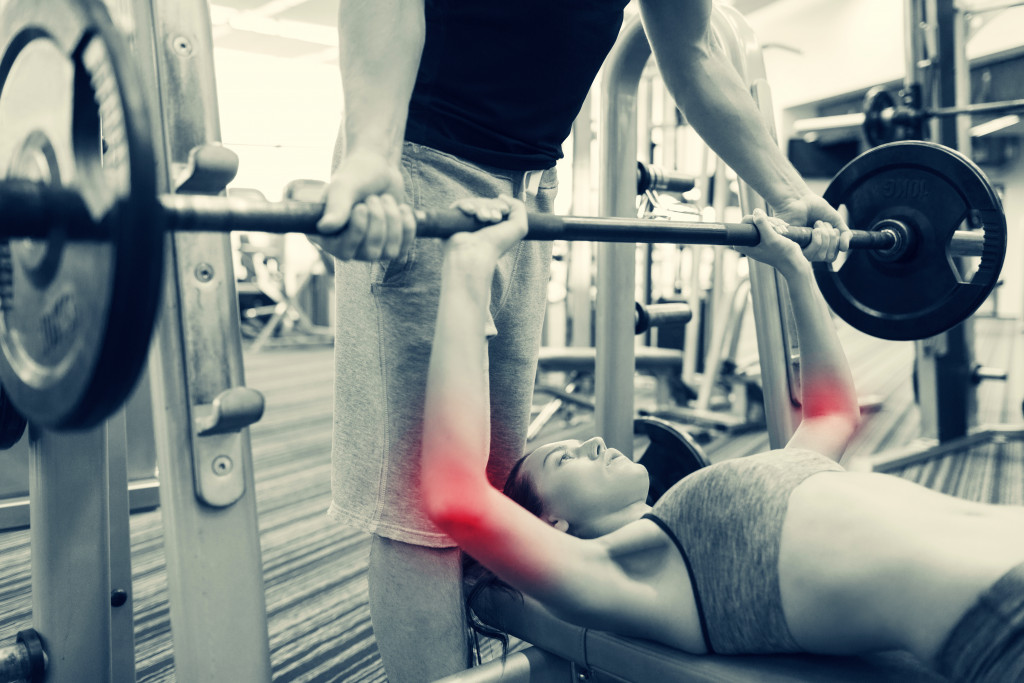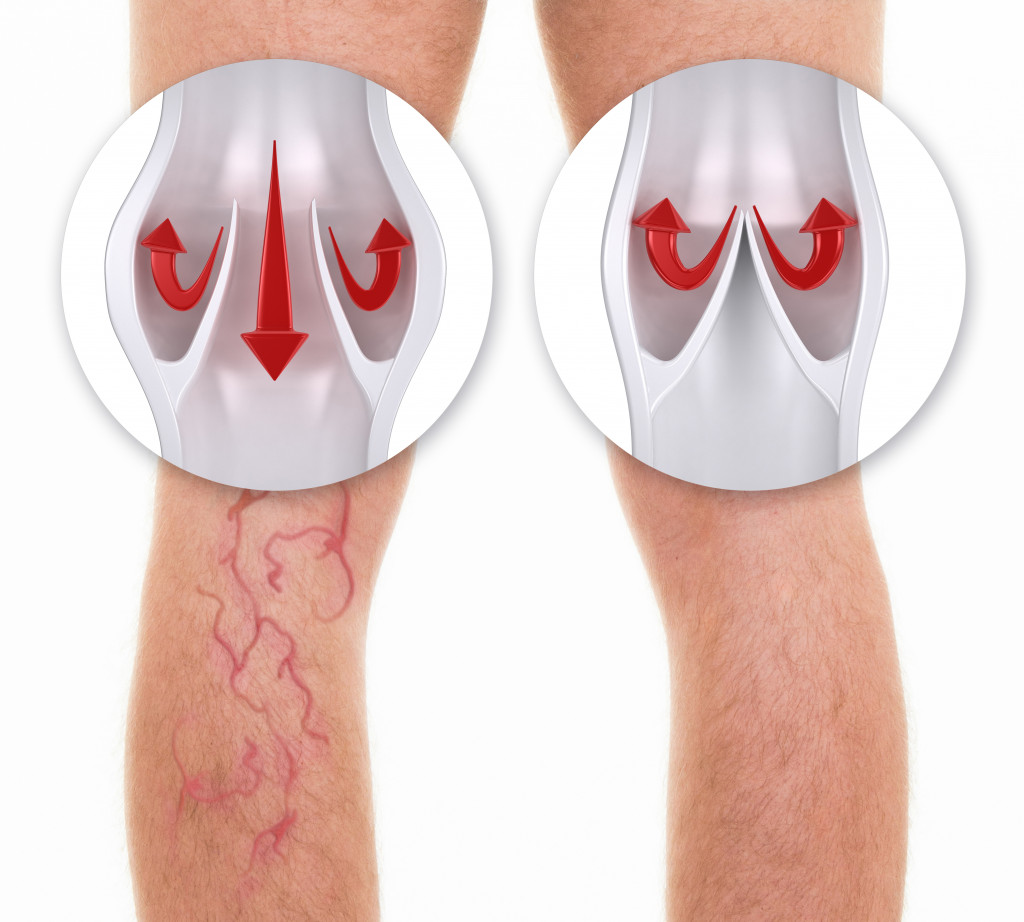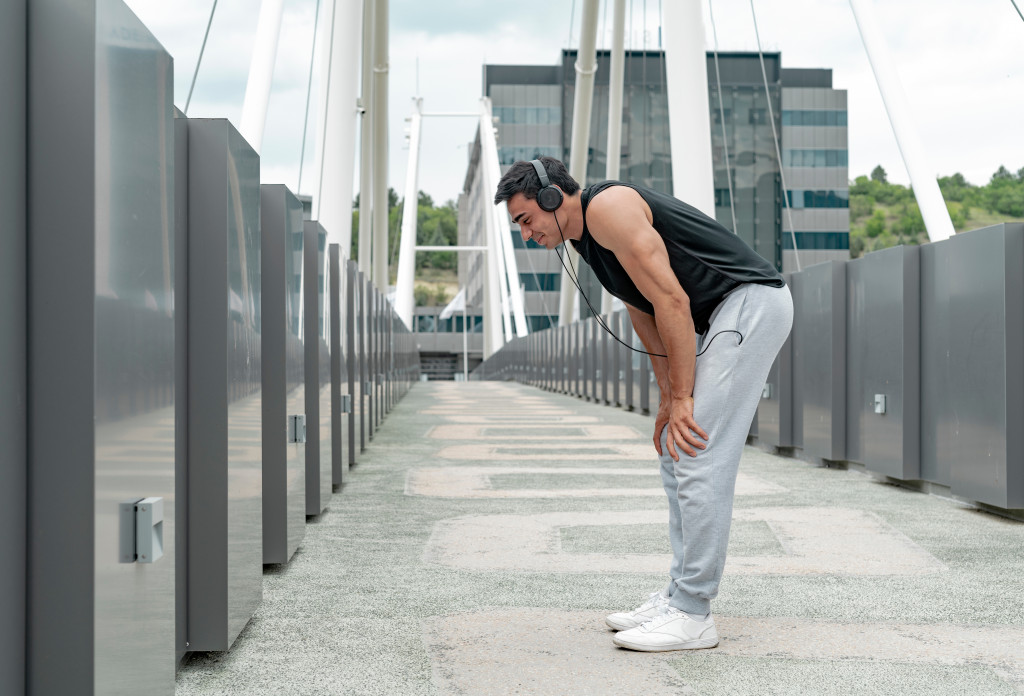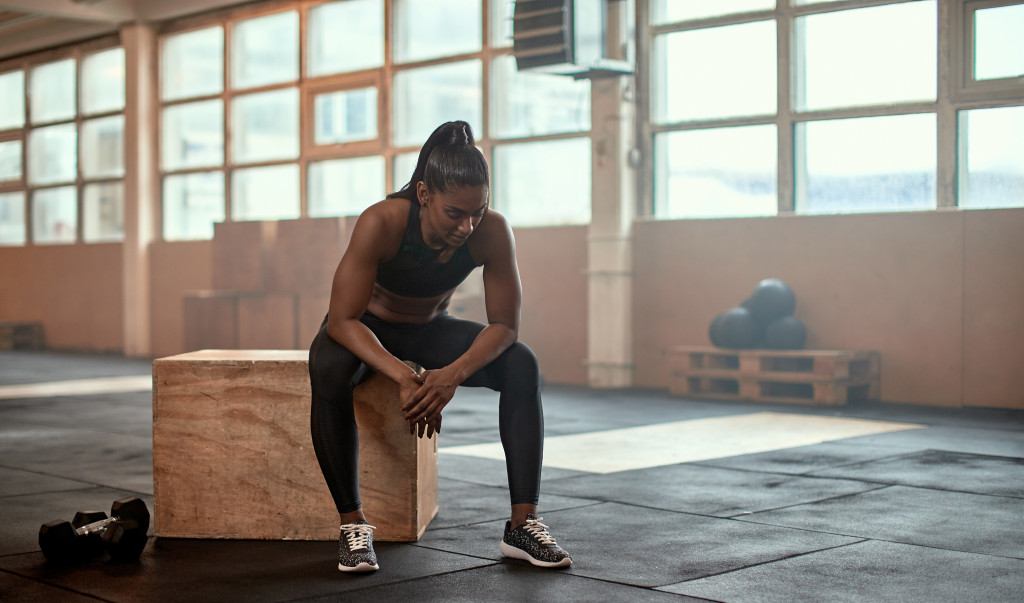- Regular exercise is beneficial, but overexertion can lead to injuries, reduced immune function, mental health issues, and hormonal imbalances.
- Intensive workouts can exacerbate or cause vein problems; preventive measures include using compression stockings and proper lifting techniques.
- Adequate nutrition is integral to health and fitness, with poor dietary habits leading to numerous health conditions and compromised workout recovery.
- Achieving fitness goals requires a holistic approach, considering physical and mental health, moderated exercise, and a balanced diet.
Regular gym workouts offer significant benefits to both physical and mental health. Adults get at least two and a half hours of moderate-intensity physical activity per week, alongside muscle-strengthening exercises two or more days a week. Regular physical activity can help reduce the risk of heart disease, type 2 diabetes, and some cancers. Additionally, physical inactivity is among the leading risk factor for deaths, leading to 3.2 million casualties globally. Individuals can ensure they meet these activity guidelines by going to the gym, contributing to a healthier lifestyle, and reducing the risk of chronic disease.
However, your quest to stay healthy might also open you to certain risks. Before going to the gym, individuals must consider their safety and health. Here are a few tips to help you make sure you stay safe at the gym:
Overexertion

Overexertion during physical activities, seemingly a sign of dedication and commitment to fitness, can lead to adverse health outcomes. Overworking the body beyond its ability to recover can lead to multiple health issues, some of which are chronic and debilitating. Here are some potential problems that could arise due to overexertion:
Injuries
Overdoing exercises, especially without adequate rest periods, increases the risk of injuries. These could range from minor sprains and strains to severe damage like fractures and ligament tears. Such injuries could put you out of action for weeks if not months.
Reduced Immune Function
Intense training without sufficient recovery can negatively affect your immune system, making you more susceptible to illnesses and infections. Regular, moderate exercise can boost your immune system, but overexertion can have the opposite effect.
Mental Health Issues
Excessive exercise can also lead to mental health issues. These may include anxiety, depression, and obsessive-compulsive behaviors. The mental stress of feeling the need to exercise constantly can become overwhelming, leading to burnout and decreased motivation.
Hormonal Imbalance
Overexertion can lead to hormonal imbalances, including reducing essential hormones like testosterone and increasing cortisol, a stress hormone. This can result in several health issues, including fatigue, reduced strength, sleep disturbances, and reduced sexual drive.
Vein Problems

Physical exercise, particularly intensive workouts at the gym, can exacerbate existing vein problems or, in some cases, lead to the development of new ones. The stress of heavy lifting or strenuous cardiovascular exercise can put immense strain on the veins, particularly in the legs. This can lead to conditions like varicose veins and deep vein thrombosis due to the increased pressure on the veins and potential damage to the vein walls.
There are several ways to treat and prevent vein problems associated with physical exercise:
Compression Stockings
Wearing compression stockings during and after your workout can significantly improve blood flow and reduce the risk of vein problems. These stockings apply pressure to your lower legs, helping to maintain blood flow and reduce discomfort and swelling.
Proper Lifting Techniques
Learning and applying proper lifting techniques can reduce the strain on your veins. Consulting with a fitness professional can ensure you’re lifting weights in a manner that minimizes risk to your vein health.
Regular Breaks
Regular breaks during your workout can help reduce the pressure on your veins. It allows your body to recover and maintain normal blood flow, reducing the risk of vein problems.
Hydration and Nutrition
Staying hydrated and ensuring proper nutrition can also maintain vein health. Hydration keeps the blood less viscous, reducing strain on the veins, while adequate nutrition can help support the veins’ health.
Remember, consulting with a certified vein specialist will be able to diagnose and treat any existing vein problems. A holistic approach to fitness and health is the best way to ensure you stay in optimal shape, free from medical issues.
Nutritional Issues

Going to the gym is not enough to stay healthy. Adequate nutrition is essential to ensure you receive the full benefits from your physical activities. A balanced diet rich in proteins, carbohydrates, healthy fats, vitamins, and minerals should be prioritized alongside exercise.
A lack of proper nutrition can lead to several health conditions, such as fatigue, muscle cramps, poor recovery times from workouts, and deficiencies in essential nutrients. Additionally, unhealthy eating habits can lead to obesity and an increased risk of cardiovascular diseases.
It is essential to consult a registered dietitian or nutritionist to ensure you are meeting your daily nutritional needs. They can provide tailored advice for your dietary requirements, ensuring you get adequate food nutrients. Meeting with a dietician regularly throughout your fitness journey is invaluable in achieving your health and fitness goals.
Final Thoughts
Staying healthy requires more than just going to the gym. Considering physical and mental health when determining your fitness goals is essential. Exercising in moderation and taking regular breaks, combined with a balanced diet and adequate hydration, are necessary to ensure you stay safe at the gym and get the full benefits of physical activity.



